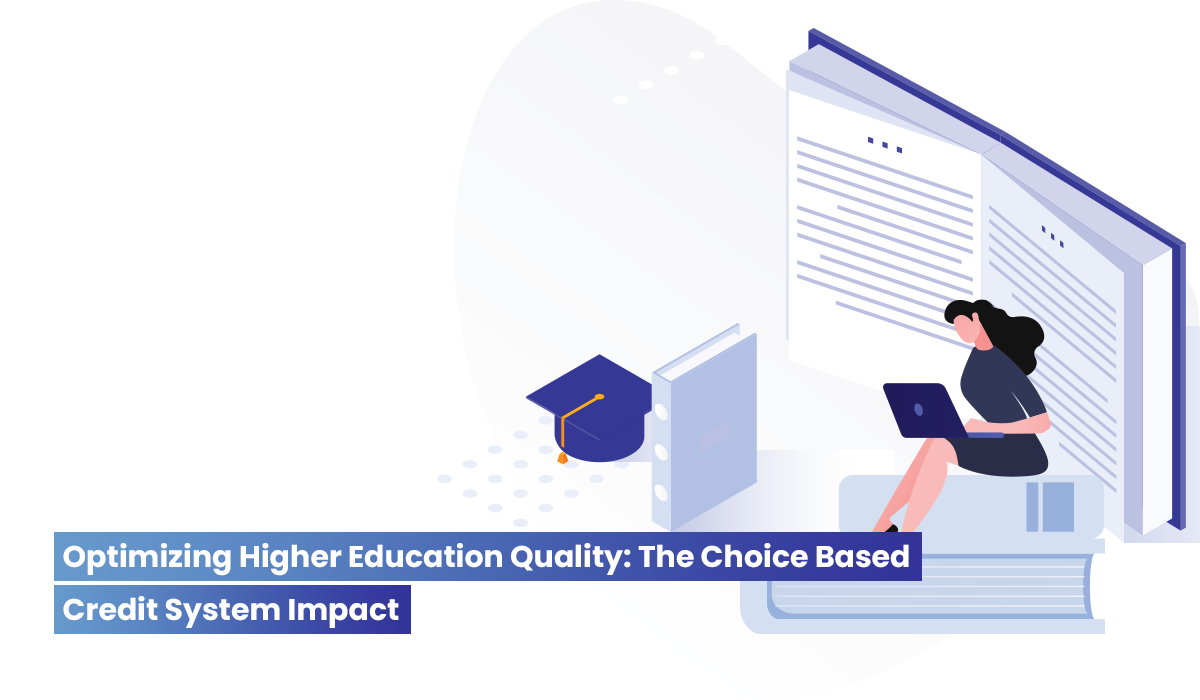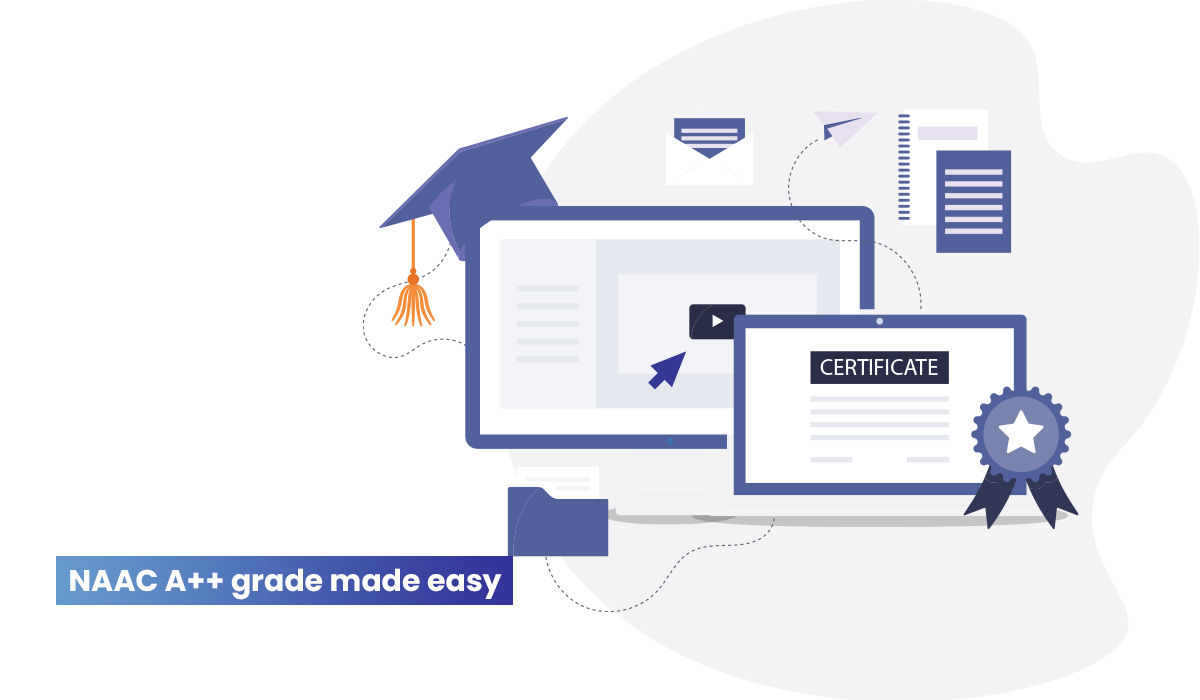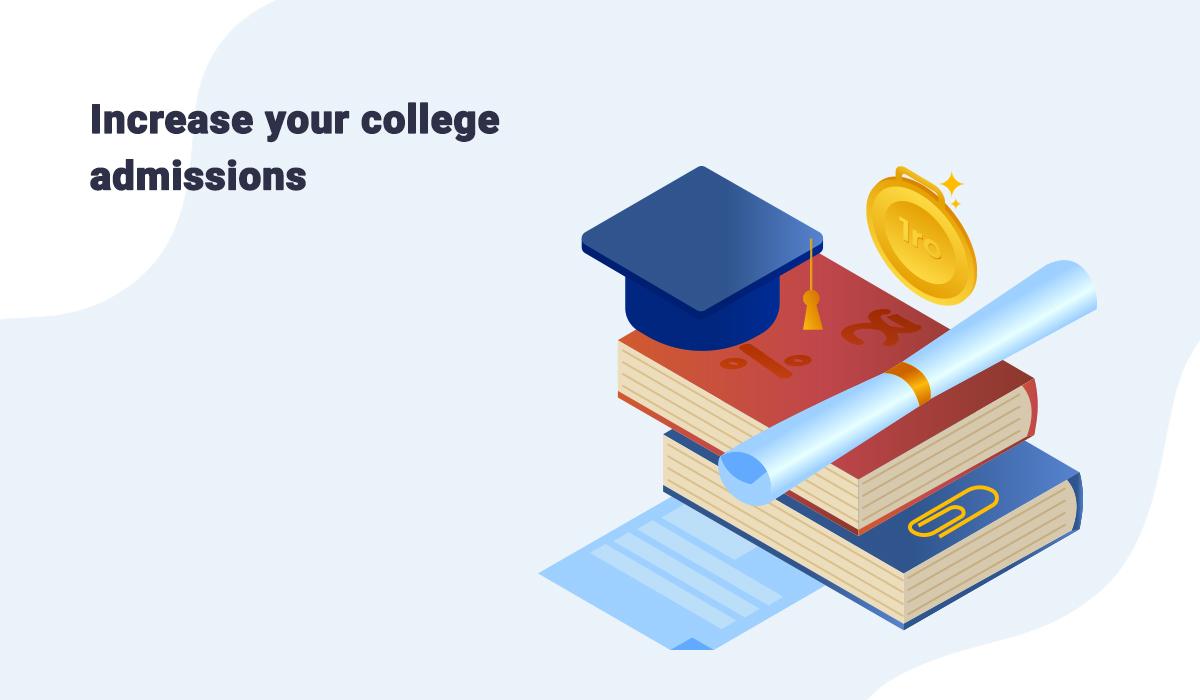Why should higher education institutions focus on Education 4.0?
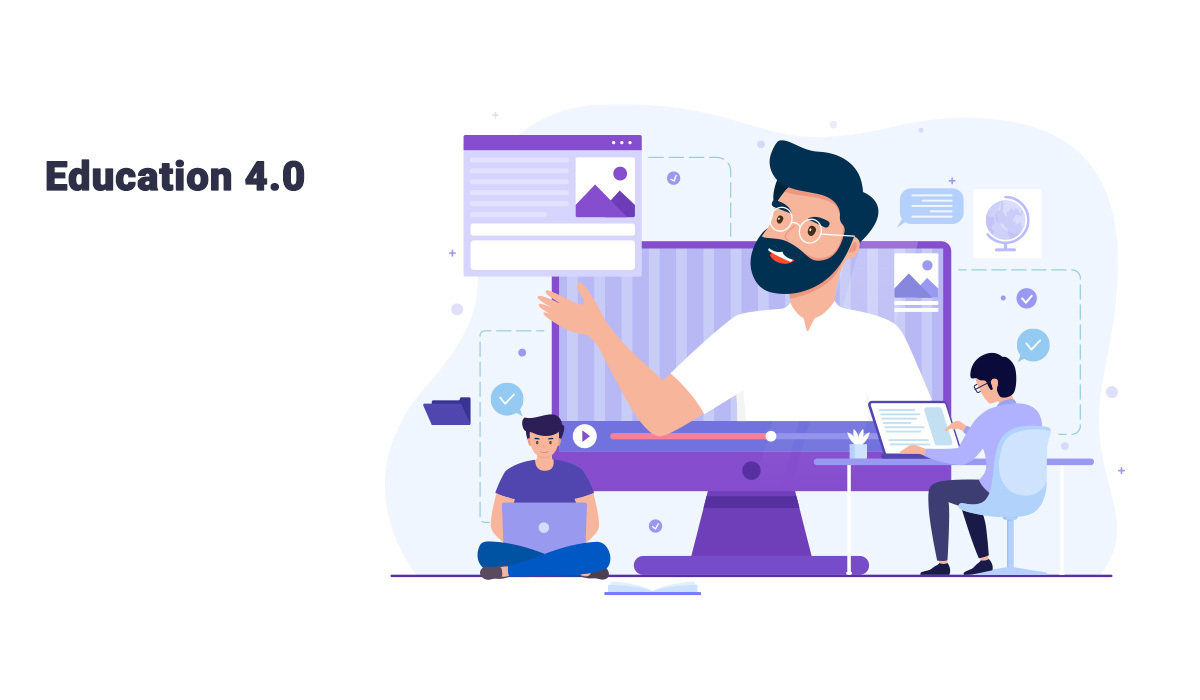
Education 4.0: The impact of today’s education has a very long tale. Tablets and smartphone supportive classrooms, online assessments, robotics, and Artificial Intelligence (AI), big data are all the infiltration of technology.
Thanks to those innovative minds and to the needs of the fourth industrial revolution, Education 4.0 is here— the fourth Education revolution, replacing the clumsy old procedures of conventional education.
What is Education 4.0?
Education 4.0 is a purposeful approach to learning that lines up with the fourth industrial revolution and about transforming the future of education using advanced technology and automation.
Creativity is the foundation of Education 4.0. It emphasizes the need to prepare students to take on challenges, head-on.
To keep up with the change, one has to revisit the traditional educational paradigms with a futuristic approach. Students should be adept with skills set by the fast-changing technology; they should be led, but not instructed; information should be made accessible, but not fed to them.
Both general and vocational education should aim at making students skill-ready to compete with the outside labor force.
Major trends of Education 4.0
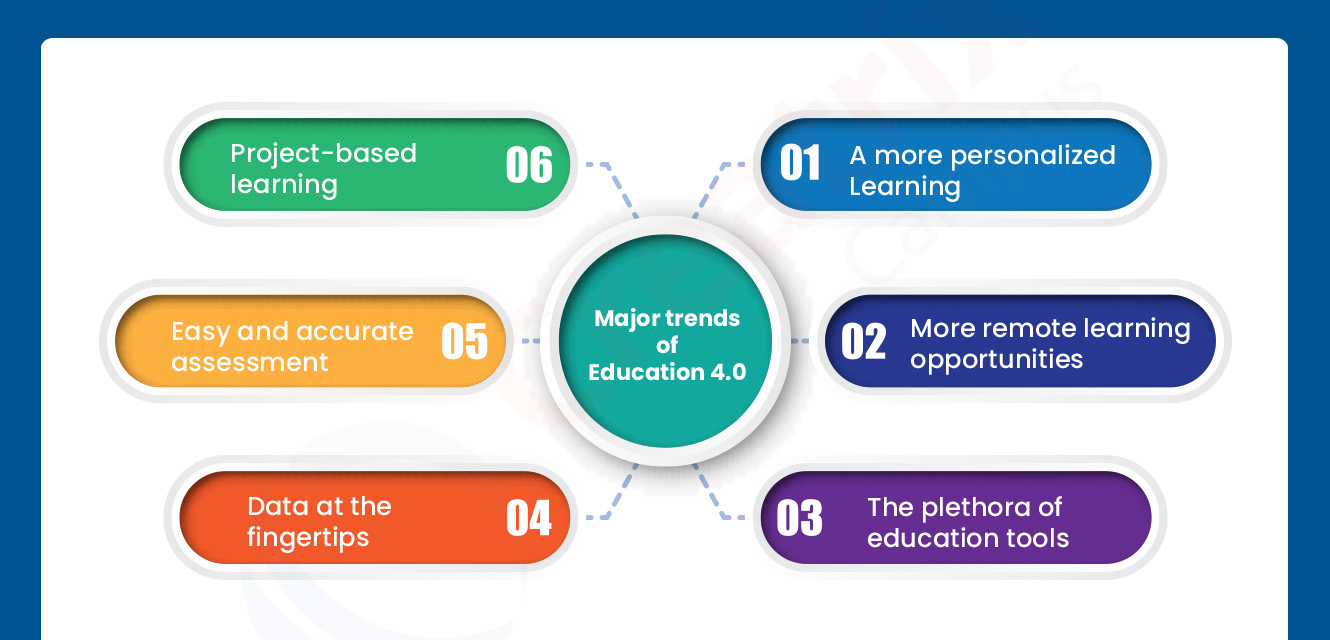
We have tried to summarise the major trends of Education 4.0 here below.
(i) A more personalized learning
Education 4.0 appreciates the individuality of every single student and their own pace of learning. Having a personalized way of teaching will have a greater impact on students to achieve their outcomes easily.
With Artificial Intelligence and Cloud Computing, there are numerous tools available that tweak the whole teaching process as per the individual learner’s needs learning pace.
Faculty, on the other hand, will be able to easily identify the strengths and weaknesses of the students and provide instant feedback.
(ii) More remote learning opportunities
The cornerstone of Education 4.0 is making learning available anywhere, anytime with the set of e-learning tools that promote remote and self-paced learning.
The Active Blended Learning (ABL) concept is picking up, where students get to be actively involved in learning beyond classrooms. This way, they end up mastering both practical and experiential learning.
(iii) The plethora of education tools
Education 4.0 offers a clear route to students by making tools and techniques handy in their learning environment.
This means that the students will be able to choose the tools and techniques through which they want to acquire knowledge. Collaborative and engagement tools flipped learning, and blended learning are a few to mention.
(iv) Project-based learning
The project-driven approach that Education 4.0 supports helps students learn in a fun and interesting way!
It shuns theoretical knowledge and prompts students to learn time management skills, organizational skills, collaborative skills, time management skills, much needed for their employment for the road ahead.
(v) Easy and accurate assessment
A more practical way of assessment comes into place with Education 4.0. There are both online and offline assessments and students get assessed on projects, assignments, and fieldwork.
(vi) Data at the fingertips
There are greater insights into the students learning journey with data analytics and reporting in Education 4.0. The statistical analysis allows teaching staff to learn where students exactly stand and guide them appropriately.
How industry 4.0 affect the education industry?
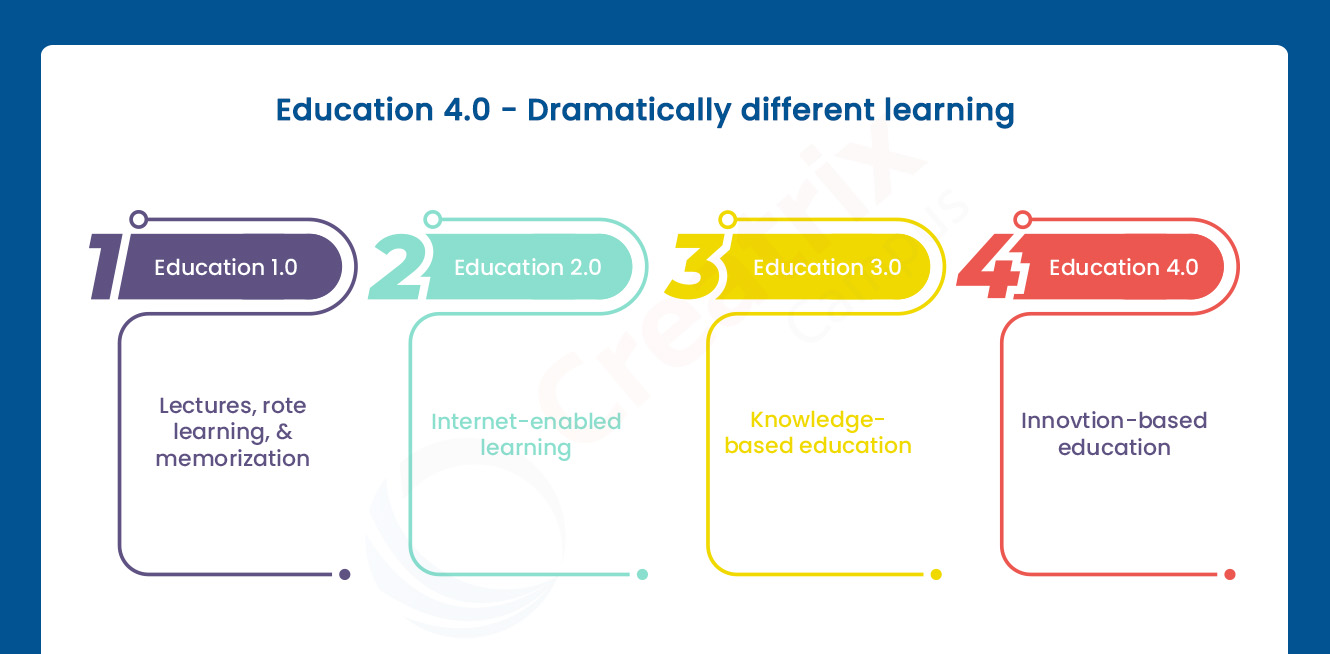
The effect of Industry Revolution 4.0 has had on Education can never be ignored.
With education 4.0, there’s a cultivating peer-to-peer learning atmosphere with students being able to learn collaboratively and from each other.
The role of teachers is that of facilitators. The curriculum and learning outcomes focus on complex 21st-century skills including problem-solving, critical thinking, creativity, people management, teamwork and collaboration, emotional intelligence, judgment and decision-making, service orientation, negotiation, and cognitive flexibility.
Is 4.0 helping the education industry? Why do education institutions need curriculum 4.0?
Education 4.0 is nothing but the curriculum of the future. It is about evolving with the times, and for higher education institutions, this means understanding what is required of their future graduates.
World leaders have laid numerous predictions about the kind of jobs the future would bring up with technology and automation. Updating the content and delivery of the education system should be an urgency.
McKinsey and Company’s recent analysis of Automation predicts that nearly 51% of the total job would be automated, which is shocking for job seekers and educators. If not addressed on time, the situation could lead to a serious level of unemployment in the coming future.
A majority of hiring managers believe that AI will impact the types of skills their companies need.
The below graph is an indication of what the hiring managers would foresee in the tech-driven workforce transformation.
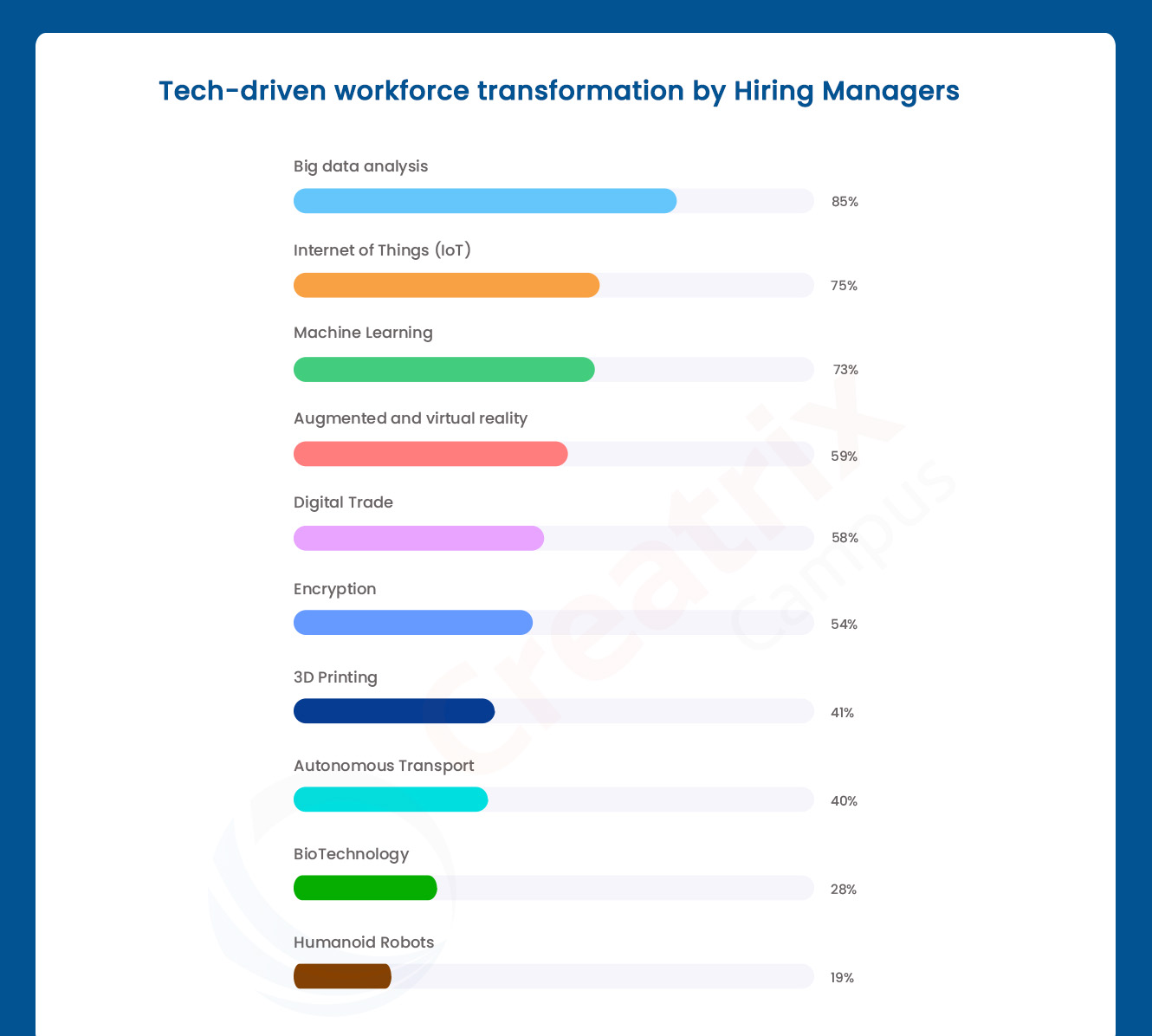
How can education institutions prepare students for Education 4.0?
The only way is by aligning industry requirements with education. Here are a few ways by which the same could be achieved;
Remodeling of Curriculum with special stress on futuristic subjects. With digitization and automation, a skill-based curriculum is an order of the day. Employers are running short of skilled workforce and bank on universities and educational institutions to upskill the present workforce.
Building digital skills. Institutions should have modern workplace skills and focus on training their faculty to build digital skills to develop fully able students for their workplace. Soft skills should be made indispensable with a mix of problem-solving, social skills, and process skills.
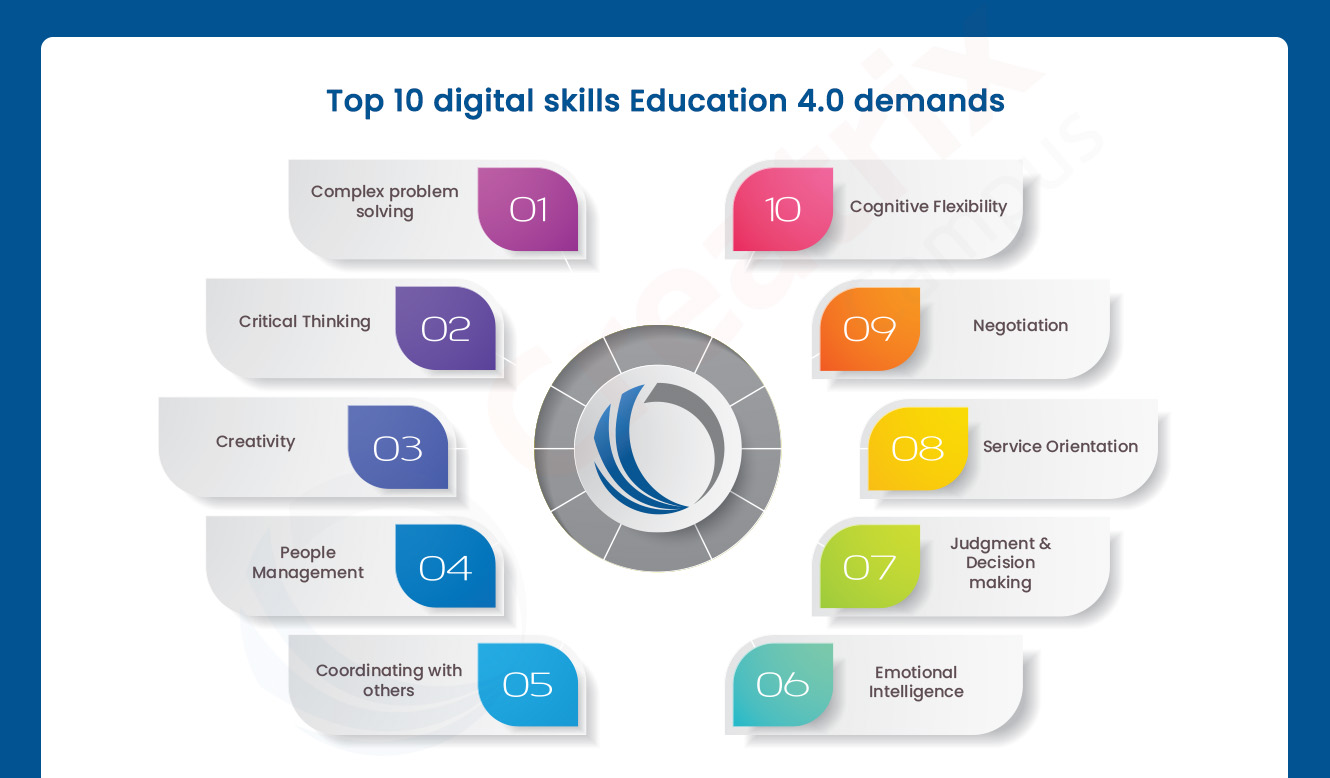
Opt for digital tools for virtual learning (face to face) environments (VLEs). This is picking up across the world where students and faculty gain remote access for teaching through LMS. Learning and teaching, accessing course content, online chat facilities, discussions, collaborations, peer teaching, blended learning, all happen in flexible hours.
Tweaking of course delivery. There should be a synchronization between the Faculty and the curriculum taught. Faculty should be open to using technological applications to improve students’ cognitive learning abilities.
They should adapt to personalized adaptive learning techniques for a smarter learning approach to make the whole process fun and interesting.
A robust professional framework with career planning inter disciplines should be included. This aspect will futurize Indian education for building a workforce for enterprise 4.0.
Technology built classrooms to be initiated across universities, colleges, and higher education institutions to deliver successful graduates for the cyber-physical systems prevalent across all industries.
This means building a technology-rich curriculum, transforming the learning approach, to better the student experience.
Conclusion
This education industrial revolution 4.0 focuses on modern and smart technology, AI, robotics, all of which influence our everyday lives.
Hence universities and colleges should gear up to this massive transformation of bringing technology-driven design into the curricula with the assistance of educationists and other visionaries.
Giving today’s workforce the right tools will help create a more multifaceted society where everyone plays their part well, adding to a self-sustainable model of education.
At Creatrix Campus we value the power digital technology has on transforming education and we are here to help you watch your step in every way possible. We know that the future of higher education is uncertain and complex. But at Creatrix Campus we will unwind it for you.
Our product Creatrix Campus is end-to-end higher education software that digitizes and automates the toughest processes and makes your campus future-ready.
We have tools to provide 24/7 virtual learning, platforms to offer personalized learning and to easily connect with faculty and other students, tools to develop curriculum the way you prefer, admit, and enroll students, conduct assessments online, etc.
There’s an Outcome-based education module for your Accreditation needs, Competency-based education module for developing effective skill-based learning.
We have built some hybrid products that improve the experience, reduce the cost of operations, and automate processes within Higher Education.
Your scheduling efforts, Virtual Classroom enablement, Accreditation, strategic planning, everything is taken care of with a set of Project Management Tools, Reporting & Analytics tools.
With Creatrix, you are not alone while planning for your next big shift in the education paradigm. Together let’s plan a preferable future for today’s students.

